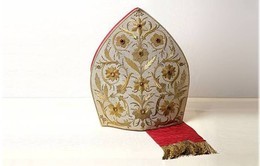Women bishops legislation: Statement from the Archbishops of Canterbury and York

Friday 25th May 2012
The Archbishops of Canterbury and York have issued a joint explanatory statement about the amendments to Clause 5 and Clause 8 of the Draft Measure made at a meeting of the House of Bishops earlier this week.The Archbishops' statement follows.
There has already been a lot of discussion about the amendments agreed this week by the House of Bishops to the draft Measure concerning the ordination of women as bishops. Although the senior officers of the Synod (the 'Group of Six') have determined by a majority that these amendments do not alter the substance of the proposals embodied in the Measure, much anxiety has been expressed as to their implications, and it may be helpful to set out what the House attempted and intended.
The House fully and wholeheartedly accepts that the draft legislation voted on by the dioceses represents the will of an undoubted and significant majority in the Church of England. They did not intend to make any change in any principle of that legislation or to create any new powers or privileges for anyone. They believed that, if certain clarifications and expansions of the wording were made, the Measure might be carried with more confidence, and, out of that conviction, agreed the new wording, which affects two questions.
To take the simpler one first: we decided to make no change to the provision in the Draft Measure by virtue of which the arrangements made by diocesan bishops under diocesan schemes for the exercise of ministry by a male bishop take effect, as a matter of law, by way of 'delegation. But we believed that it would help to spell out what is and isn't meant by the 'delegation' of the power to perform acts of episcopal ministry. Bishops are bishops because they are ordained in the name of the whole Church; but they are enabled to act as bishops in this or that particular area in virtue of various legal provisions. For those who are not diocesan bishops, this means that a diocesan gives them the legal authority to act as bishops - as pastors and teachers and people responsible for other ordained ministers.
'Delegation' describes the giving of that authority. It does not take anything away from the diocesan bishop who delegates; it just allows another bishop to minister legally in the diocesan's area of oversight. The amendment simply declares what the law and practice of the Church already is, and what we mean by delegation in other contexts.
The second amendment requires rather more explanation.
The earlier draft of the Measure already allowed parishes to request the diocesan to provide a male bishop to minister to them if their theological convictions were such as to make it impossible in conscience to receive a woman's ministry in this role. For this to operate effectively, a diocesan would obviously have to do what could be done to find a bishop who could work constructively with such a parish.
The amendment requires the Code of Practice which the bishops will draw up to offer guidance as to how this might be achieved. This was already something the bishops and the Synod would have been able to include in the Code. The change is that they will now have to include such guidance. It does not give parishes the right to 'choose their own bishop' or insist that their bishop has a particular set of beliefs. It allows them to ask for episcopal ministry, as spelled out in Clause 2 of the Measure, only on the grounds of theological conviction about women's ordained ministry. The precise wording in the Code remains something for the Bishops and Synod to determine but it attempts to take seriously the fact that, as has been clear all along, simply providing any male bishop would not do justice to the theological convictions lying behind requests from some parishes.
The bishops have listened to a great many diverse voices in the process of finalising these amendments, and they are aware that their decision to reject some amendments and accept others may be difficult for a good many people on all sides of the argument, for very different reasons. They were painfully aware that whatever decision they came to would surprise or disappoint some, but they believed that some helpful modifications could be made without sacrificing any aspect of the Measure's main purpose or changing any of its fundamentals, and so allowing the legislation to command a wider degree of support and welcome.
So they hope that the new wording now presented will be considered carefully and dispassionately by the Church at large. We have tried to keep in view what might be for the good of the whole Church's mission, and we commend these amendments to the Church's reflection and prayer over the coming weeks as the moment of decision approaches.
